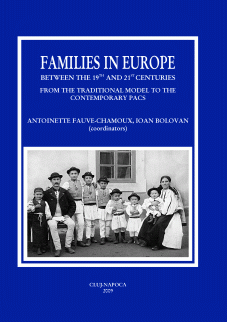Cultivating Obedient Citizens and Good Christian Families: Church and Austrian Empire in the First Half of the 19th Century
Cultivating Obedient Citizens and Good Christian Families: Church and Austrian Empire in the First Half of the 19th Century
Author(s): Jelena LakušSubject(s): History
Published by: Centrul de Studiere a Populaţiei
Keywords: Josephinism; Austrian Empire; Dalmatia; 19th Century; books and reading
Summary/Abstract: The first half of the 19th Century in the Austrian Empire was still marked by the spirit of Josephinism that subordinated Church to state. The State considered itself the divinely ordained guardian of the faith and the Church, while the Church and clerics were put into the political service of the State. Parish priests were regarded as loyal state servants rather than servants of God. Main tasks of the Church were to teach worshippers the basic morale principles and assure useful, passive and obedient citizens. The printed word, mostly devotional books, catechisms, prayer books and pastoral letters, seemed to best suit the needs of the authorities. Such literature might have had the greatest affect upon people, as it was customarily read among them in the midst of the family or heard while regularly attending church services. Besides, in the first half of the 19th Century, these were often only books that most of the families possessed and came across during their lives. Since both Church and State were convinced that books should have primarily a didactic and disciplining role, they expressed their decisive and expansive hostility towards the new reading habits developing at the time: reading for the purpose of amusement (religious publications were surpassed by other secular topics being in tune with the secularisation of society) and reading in private. These new habits were considered dangerous, even anarchic in its character. The clergy feared that change in the reading habits of the populace would lead to a process of secularisation and de-Christianisation of society, whilst the secular authorities feared the endangerment of the existing social and political order. This paper, based mostly on the case of Dalmatia, the most south-eastern province of the Empire, suggests several important issues. First, it shows that the pages of periodicals, catechisms, sermons and other didactic and instructive texts of the time were filled with a number of pieces of advice on both the method and content of reading. Second, it shows that the authors of these pieces of advice were as a rule almost always the clergy, both Catholic as well as Orthodox. Third, strict warnings of reading “dangerous” books were mostly directed to parents, mainly mothers, who should protect the young from “dangerous” reading habits. Finally, the paper demonstrates that in the course of the first half of the 19th Century both Church and dynasty participated in edification, moral and political guidance of the family. There remained a belief, rooted in the Josephinism, that a good education would render the family members good Christians, and accordingly, good citizens.
Journal: Romanian Journal of Population Studies
- Issue Year: 3/2009
- Issue No: Supplement
- Page Range: 555-574
- Page Count: 20
- Language: English
- Content File-PDF

